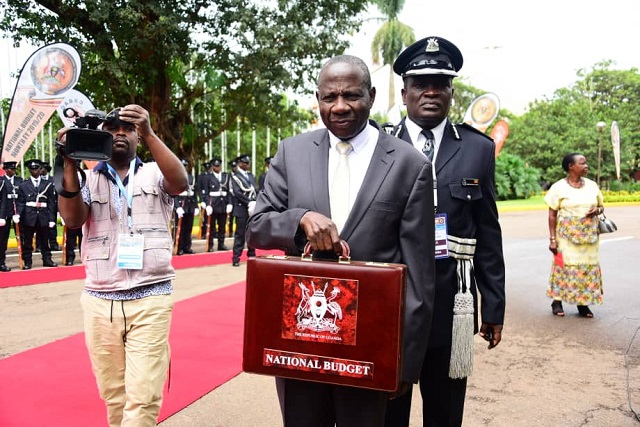
Kampala, Uganda | Julius Businge | Tax experts have weighed in on the recently introduced taxes aimed at increasing domestic revenue to fund the new budget for FY2019/20.
Speaking at a half day post budget tax dialogue organised by the Southern and Eastern Africa Trade Information and Negotiations Institute (SEATINI), under the umbrella of the Tax Justice Alliance held at Protea Hotel on June 24, the experts said as government eyes new tax revenue, it has to feel the gaps in tax administration and improve accountability.
Regina Navuga, the Programme Officer at SEATINI who is in charge of Financing for Development Programme said there is need to determine the extent to which these measures are sustainable and equitable.
“This has to be backed by prudent utilisation of resources and stringent mechanisms to eliminate leakages through tax dodging and corruption at local and national levels,” she added.
Paul Lakuma, a Research Fellow at the Makerere based Economic Policy Research Centre said that more efforts need to be put into bringing players within the informal sector to the tax bracket through government programmes like Tax Register Expansion Project (TREP).
Henry Semanda from the Governance Accountability and Performance Programme said there is need to do taxpayer education programmes amongst all players in the tax system.
He said that the government even has the capacity to collect more than the Shs20trillion they are targeting once the population is made to understand what exactly their tax does.
Lawrence Bategeka, the Vice Chairperson of the Committee on National Economy at Parliament said the government needs to borrow a leaf from developed countries and implement a holistic development strategy that would attract new investors, grow the economy and widen the tax base.
The dialogue came days after the June 13 budget was read by Finance Minister Matia Kasaija. In his budget, Kasaija said the total resource envelope for FY2019/20 is Shs40.4trillion and would run under the theme “Industrialization for Job Creation and Prosperity.”
Out of this total budget, domestic revenue (tax and non-tax revenue) would contribute Shs20.8trillion, borrowing would amount to Shs10.5trillion, grants would total to Shs1.5trillion, appropriation in aid and external debt repayments would total to Shs924billion and domestic debt refinancing would amount to Shs6.5trillion.
To partly raise domestic revenue, government made amendments to the tax law and introduced several new tax measures.
One of the measures is that government securities will now be subjected to a reduced 10% withholding rate with a maturity period of at least 10 years.
This incentive will apply to both local and foreign investors and is aimed at encouraging investors to lend to the government on a long term basis.
Under the new measures, the 1% withholding tax on agricultural supplies is repealed.
The other measure is financial institutions and insurance companies will be excluded from the interest deduction limitation in section 25 (whereby interest deductibility is limited to 30% of Earnings before interest, tax, depreciation and amortization EBITDA).
Experts say this is a welcome as the financial services sector has been advocating for the pre-July 2018 position to be restored.
The other amendments include a ten year exemption for income of a developer from letting or leasing facilities in an industrial park or free zone with an investment of $50million (Shs184bn) or more.
The amendment increases the existing exemption period (from five years) and reduces the investment threshold (from $100 million – equivalent to Shs368bn).
The other measure is a ten year exemption for income of an operator within an industrial park or free zone, or other person carrying on business outside the industrial park or free zone, whose investment capital is at least $10million (Shs36bn) for a foreigner or $2 million (Shs7.3bn) for citizens. The amendment increases the existing exemption period (from five years) and reduces the investment threshold.
The other measure is the introduction of an exemption for income of an operator within an industrial park or free zone, or an operator who owns a single factory or other business outside the industrial park of free zone, whose investment capital is at least $10million (Shs36bn) for a foreigner or $2 million (Shs7.3bn) for a citizen.
 The Independent Uganda: You get the Truth we Pay the Price
The Independent Uganda: You get the Truth we Pay the Price


